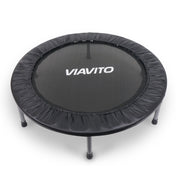Whether you’re a beginner or a pro, packing your racket bag before a match or training session is an important part of a tennis player’s preparation process and can make the difference between winning and losing a match or having a productive training session versus one that you’d rather forget.
By packing your tennis bag with everything that you might need on the court, you’ll not only be physically prepared, but more importantly, you will also feel more prepared mentally.
Today, I’m going to share what items I get my players to pack in their bags. I’ll break it down into Recreational players, Competitive players and Pros so that you can consider what exactly you may need in your bag!
Rackets

First and foremost, you’re going to need a racket. Now, without going into too much detail about which racket is right for you, you need to make sure that it is the right length, weight, head size and grip size. There are other elements to choosing the right tennis racket which I will go into in more detail in a future blog. But for now, let's assume you have a racket that you like.
A recreational player obviously needs at least one racket in their bag but should consider a second racket if they have broken a string or two in the past. I recommend using two of the same rackets so that you can switch between them comfortably without risk of injury. If you’re a competitive player or a frequent string breaker, then you definitely need two, but could consider a third as there’s nothing worse than breaking a string in a match and worrying about only having one left! Professional tennis players will carry a minimum of three in their bags.
Balls

It sounds obvious but I know so many players that don’t carry balls in their tennis bag (maybe it’s a tactical way of getting their hitting partner to provide them!) Anyway, I encourage all of my players to carry at least one tube of tennis balls in their bag at all times.
Recreational players can keep a tube of balls for a number of sessions - the balls get easier to play with as they get a little older (lower bounces). Don't keep them for too long as they’ll go flat and won’t be much fun to play with! Competitive players should carry a couple of tubes of balls. I suggest a new tube and a used tube. This way, you can train with a tube for a few sessions, but if you have a match or need to prepare for a match, you should always use the new ones. Professional tennis players play with new balls pretty much all of the time as they need to be tuned into the feel of the ball. They’ll even make sure that they find out which brand of ball they’ll be using in their next tournament so that they can train with that brand beforehand!
Grips

I like to keep spare grips in my bag as you never know when you might need to replace one. Grips can deteriorate with wet weather, sweaty hands or just with time. Applying a fresh grip can make your racket feel brand new again and can definitely help you to perform better.
An ‘overgrip’ is a thin wrap that is applied over the top of the racket's existing grip, whereas a ‘replacement grip’ is usually more cushioned and replaces your racket's base grip.
Depending on what type of grip you prefer, I suggest keeping at least one in your bag. I always use an overgrip as I like the feel, however, I know lots of players that prefer using just the base grip, so it’s very much down to preference.
Recreational players should change their grip when it starts to feel slippery or shows signs of wear and tear. Competitive players will probably want to change more frequently, possibly once every 3-4 sessions and pros would usually change their grip before every match. So it’s always good to keep a supply in your bag.
If you’ve never changed a grip before, I’ll make a tutorial video for you soon!
Warm-up kit

An essential piece of kit for your bag which often gets left out is warm-up equipment. A warm-up is vital before any session no matter what your level.
My favourite piece of kit to warm up with are resistance tubes or bands. These are suitable for players of all levels, including juniors as they come in a range of resistance levels. I like to use them by threading them through the net and holding both ends of the tube for shoulder press, lat raises, chest flys and reverse flys, along with a number of rotator cuff exercises. There are also bands specifically designed for leg exercises.
The best thing about bands and tubes is they take up very little space, they’re super versatile, and they don’t cost much!
Other essentials

The list of other fitness accessories you might find useful is below:
- Water bottle (I use two, one for water and the other for my electrolytes drink)
- Towel
- Change of clothes
- Cap and sunglasses
- Sun cream
I’m sure you’ve already got a few of those items already packed in your bag, but hopefully, you found this article useful! If you have any questions or suggestions for future topics, I’m in the Sweatband Tennis Facebook Group, so pop them in there, and I’ll get back to you!
─────────────────────────────────────────────────────────────────
Article by Ashley Neaves - The Tennis Mentor
www.thetennismentor.co.uk
Happy hitting!
Ashley, The Tennis Mentor

